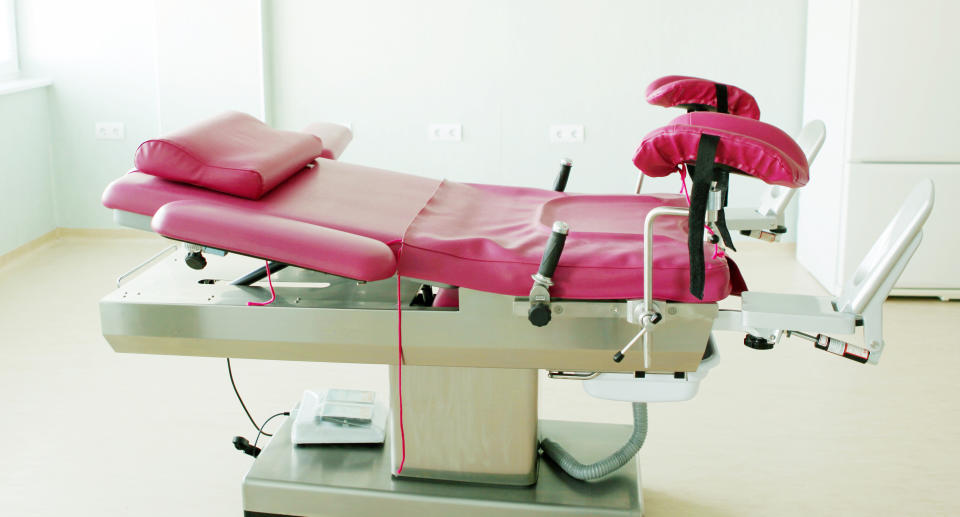Largest review of abortion in U.S. finds it to be 'safe and effective'
In 2018, “abortion” is often thought of less as a medical procedure and more as a political battleground — one that drives news stories, fuels debates, and sways voters. Whether it’s Donald Trump endorsing the “pro-life” agenda on the National Mall, or Mississippi lawmakers banning abortion after 15 weeks, national conversations often center around the ethics of abortion, and rarely touch on the safety of the procedure.
This month, the National Academies of Sciences, Engineering, and Medicine (NASEM) set out to shift the narrative surrounding abortion, focusing the conversation on the safety of the medical procedure rather than the ethics behind it. In a 186-page joint report, 22 experts explored the existing data on not only the safety of medical abortions, but also the efficacy. Pro-abortion experts see their report as a momentous shifting of the abortion debate, one that makes sound scientific evidence a priority in the conversation. Meanwhile, antiabortion experts tell Yahoo Lifestyle that the study isn’t comprehensive enough to be taken seriously.
Published by the National Academy of Sciences, the study’s goal was to peel back the layers on abortion data in America and make the information more accessible to the masses. To achieve this, doctors, scientists, and researchers pored through hundreds of randomized control trials, systematic reviews, and epidemiological studies of abortion since it was legalized in the U.S in 1973 through Roe v. Wade. The chief question they sought to answer was a simple one: Are abortions safe? The answer: an unequivocal yes.

“Legal abortions in the United States — whether by medication, aspiration, [dilation and evacuation], or induction — are safe and effective,” the authors conclude. “Serious complications are rare and occur far less frequently than during childbirth.” On top of finding abortions safe, the authors found evidence that unnecessary delays increase the likelihood of harm.
“Safety and quality are optimized when the abortion is performed as early in pregnancy as possible,” the authors wrote. “Quality requires that care be respectful of individual patient preferences, needs, and values so that patient values guide all clinical decisions.”
To reach these conclusions, researchers used “six dimensions of health care quality” (taken from a 2001 report called Crossing the Quality Chasm: A New Health System for the 21st Century). These six points of reference are safety, effectiveness, patient-centeredness, timeliness, efficiency, and equity. Using this framework, they also studied the physical and mental health risks that are often associated with abortions.
Most of these risks — such as the idea that abortions can cause depression, lead to infertility, and raise a woman’s chance of breast cancer — are circulated by antiabortion activists. The researchers concluded these — and others — are unfounded. “Much of the published research on these topics does not meet scientific standards for rigorous, unbiased research,” the researchers wrote, adding a higher chance of preterm birth, anxiety, and posttraumatic stress disorder to the list of unproven claims.
Beyond disputing the myths that exist surrounding abortion’s risks, what seemed most troubling to the researchers was that these claims are used to place restrictions on abortion access. “The quality of abortion care depends on where a woman lives. In many states, regulations have created barriers to safe, effective, patient-centered, timely, efficient, and equitable abortion services,” the authors wrote. “The regulations often prohibit qualified providers from providing services, misinform women of the risks of the procedures they are considering, overrule women’s and clinician’s medical decision making, or require medically unnecessary services and delays in care.”

The regulations they mention aren’t an anomaly — they’re the rule when it comes to abortion access in America. According to the Guttmacher Institute, 401 abortion restrictions have been adopted by states across the U.S. since 2011, 71 in the past year alone. Currently, 29 states are considered hostile or extremely hostile to abortion rights, meaning that 58 percent of U.S.-based women of reproductive age live in a state that hinders their ability to safely terminate their pregnancy.
Dr. Daniel Grossman, a clinical and public health researcher on abortion and contraception from the University of California, San Francisco, hopes that will change — and that this study will be the first step. “I thought the study was incredibly rigorous and well done,” Grossman tells Yahoo Lifestyle. “It sought to answer important questions and did a good job of reviewing the literature fully and come up with very solid answers that are based on good evidence.”
Grossman, who is also the director of UCSF’s research group Advancing New Standards in Reproductive Health, gained notoriety on the Internet for “schooling” an Arizona representative on Twitter who claimed it was “science” that fetuses could feel pain at 20 weeks. Grossman, who posted a thread that went viral, began it, “This isn’t science.”
Hi Rep. Trent Franks. I’m a researcher and abortion provider. This isn’t actual science. I’d be happy to educate you about it if you’d like. https://t.co/YPEKrhD32Z
— Dr. Daniel Grossman (@DrDGrossman) October 3, 2017
Like Grossman tweeting to clarify myths online, he hopes the NASEM study will remind people that abortion is a medical issue first. “Restrictions force women to jump through hoops and make extra unnecessary visits and read information that’s inaccurate,” he says. “This report does a very good job at looking at this issue, which has become now so politicized, through a lens of health care. These debates have big impacts on patients, but the voices of doctors are rarely heard.”
Not everyone agrees that the study was well done, however. Dr. Donna Harrison, executive director of the American Association of Pro-Life Obstetricians and Gynecologists, suggests it’s missing important data. “The study is not a scientific study in that they have neglected to look at 150 studies over the last 50 years which have shown an association between abortion and preterm birth in subsequent pregnancies,” Harrison tells Yahoo Lifestyle, adding that she believes they left out studies on suicide, substance abuse, and major depression as well.
Harrison also seems acutely concerned with a lack of attention to research showing an increase in breast cancer risk. “I disagree with the obvious conclusion here and I think the evidence speaks for itself,” Harrison concludes. “Anyone who takes an honest look at what the research shows will see that abortion hurts women.” Studies prior to this one have discounted these claims.
Grossman begs to differ. “Abortion as currently practiced in the U.S. is very, very safe, and restrictions that limit access negatively impact the quality of care,” he tells Yahoo Lifestyle. “Even beyond that, they’re unnecessary. There is no health benefit that’s demonstrated to come from restrictions. If we treated this service more like health care, it would be a lot of better for everyone—both for women who are accessing it and the providers who are offering it.”
In response to Harrison’s comments, a spokesperson for the National Academy of Science sent the following: “The committee examined the scientific evidence on the safety and quality of abortion care in the U.S. We stand by our report.”
Read more from Yahoo Lifestyle:
Support builds for student who may be expelled over Planned Parenthood sticker
Here’s what you need to know about Texas’s brutal fetal burial law
Follow us on Instagram, Facebook, and Twitter for nonstop inspiration delivered fresh to your feed, every day.

